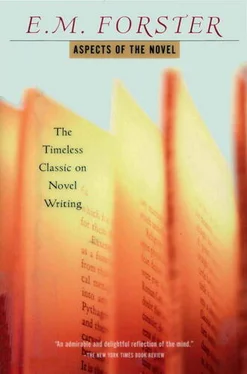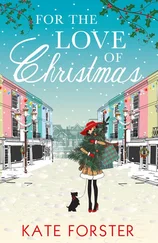Through the square, across the High, down Grove Street they passed. The Duke looked up at the tower of Merton, ώς ουποτ’ αυθις άλλα νυν πανύσταον . Strange that tonight it would still be standing here, in all its sober and solid beauty—still be gazing, over the roofs and chimneys, at the tower of Magdalen, its rightful bride. Through untold centuries of the future it would stand thus, gaze thus. He winced. Oxford walls have a way of belittling us; and the Duke was loth to regard his doom as trivial.
Aye, by all minerals we are mocked. Vegetables, yearly deciduous, are far more sympathetic. The lilac and laburnum, making lovely now the railed pathway to Christ Church meadow, were all a-swaying and nodding to the Duke as he passed by. "Adieu, adieu, your Grace," they were whispering. "We are very sorry for you, very sorry indeed. We never dared suppose you would predecease us. We think your death a very great tragedy. Adieu! Perhaps we shall meet in another world—that is, if the members of the animal kingdom have immortal souls, as we have."
The Duke was little versed in their language; yet, as he passed between these gently garrulous blooms, he caught at the least the drift of their salutation, and smiled a vague but courteous acknowledgment, to the fight and the left alternately, creating a very favourable impression.
Has not a passage like this—with its freedom of invocation—a beauty unattainable by serious literature? It is so funny and charming, so iridescent yet so profound. Criticisms of human nature fly through the book, not like arrows but upon the wings of sylphs. Towards the end—that dreadful end often so fatal to fiction—the book rather flags: the suicide of all the undergraduates of Oxford is not as delightful as it ought to be when viewed at close quarters, and the defenestration of Noaks almost nasty. Still it is a great work—the most consistent achievement of fantasy in our time, and the closing scene in Zuleika's bedroom with its menace of further disasters is impeccable.
And now with pent breath and fast-beating heart, she stared at the lady of the mirror, without seeing her; and now she wheeled round and swiftly glided to that little table on which stood her two books. She snatched Bradshaw.
We always intervene between Bradshaw and any one whom we see consulting him. "Mademoiselle will permit me to find that which she seeks?" asked Melisande.
"Be quiet," said Zuleika. We always repulse, at first, any one who intervenes between us and Bradshaw.
We always end by accepting the intervention. "See if it is possible to go direct from here to Cambridge," said Zuleika, handing the book on. "If it isn't, then—well, see how one does get there."
We never have any confidence in the intervener. Nor is the intervener, when it comes to the point, sanguine.
With mistrust mounting to exasperation Zuleika sat watching the faint and frantic researches of her maid.
"Stop!" she said suddenly. "I have a much better idea. Go down very early to the station. See the station-master. Order me a special train. For ten o'clock, say."
Rising, she stretched her arms above her head. Her lips parted in a yawn, met in a smile. With both hands she pushed back her hair from her shoulders, and twisted it into a loose knot. Very lightly she slipped up into bed, and very soon she was asleep.
So Zuleika ought to have come on to this place. She does not seem ever to have arrived and we can only suppose that through the intervention of the gods her special train failed to start, or, more likely, is still in a siding at Bletchley.
Among the devices in my list I mentioned "parody" or "adaptation" and would now examine this further. The fantasist here adopts for his mythology some earlier work and uses it as a framework or quarry for his own purposes. There is an aborted example of this in Joseph Andrews. Fielding set out to use Pamela as a comic mythology. He thought it would be fun to invent a brother to Pamela, a pure-minded footman, who should repulse Lady Booby's attentions just as Pamela had repulsed Mr. B.'s, and he made Lady Booby Mr. B.'s aunt. Thus he would be able to laugh at Richardson, and incidentally express his own views of life. Fielding's view of life however was of the sort that only rests content with the creation of solid round characters, and with the growth of Parson Adams and Mrs. Slipslop the fantasy ceases, and we get an independent work. Joseph Andrews (which is also important historically) is interesting to us as an example of a false start. Its author begins by playing the fool in a Richardsonian world, and ends by being serious in a world of his own—the world of Tom Jones and Amelia.
Parody or adaptation have enormous advantages to certain novelists, particularly to those who may have a great deal to say and plenty of literary genius, but who do not see the world in terms of individual men and women—who do not, in other words, take easily to creating characters. How are such men to start writing? An already existing book or literary tradition may inspire them—they may find high up in its cornices a pattern that will serve as a beginning, they may swing about in its rafters and gain strength. That fantasy of Lowes Dickinson, The Magic Flute, seems to be created thus: it has taken as its mythology the world of Mozart. Tamino, Sarastro, and the Queen of the Night stand in their enchanted kingdom ready for the author's thoughts, and when these are poured in they become alive and a new and exquisite work is born. And the same is true of another fantasy, anything but exquisite—James Joyce's Ulysses. [6] Ulysses, Shakespeare & Co., Paris, is not at present obtainable in England. America, more enlightened, has produced a mutilated version without the author's permission and without paying him a cent.
That remarkable affair—perhaps the most interesting literary experiment of our day—could not have been achieved unless Joyce had had, as his guide and butt, the world of the Odyssey.
I am only touching on one aspect of Ulysses: it is of course more than a fantasy—it is a clogged attempt to cover the universe with mud, it is an inverted Victorianism, an attempt to make crossness and dirt succeed where sweetness and light failed, a simplification of the human character in the interests of Hell. All simplifications are fascinating, all lead us away from the truth (which lies far nearer the muddle of Tristram Shandy), and Ulysses must not detain us on the ground that it contains a morality—otherwise we shall also have to discuss Mrs. Humphry Ward. We are concerned with it because, through a mythology, Joyce has been able to create the peculiar stage and characters he required.
The action of those 400,000 words occupies a single day, the scene is Dublin, the theme is a journey— the modern man's journey from morn to midnight, from bed to the squalid tasks of mediocrity, to a funeral, newspaper office, library, pub, lavatory, lying-in hospital, a saunter by the beach, brothel, coffee stall, and so back to bed. And it coheres because it depends from the journey of a hero through the seas of Greece, like a bat hanging to a cornice.
Ulysses himself is Mr. Leopold Bloom—a converted Jew—greedy, lascivious, timid, undignified, desultory, superficial, kindly and always at his lowest when he pretends to aspire. He tries to explore life through the body. Penelope is Mrs. Marion Bloom, an overblown soprano, by no means harsh to her suitors. The third character is young Stephen Dedalus, whom Bloom recognizes as his spiritual son much as Ulystts recognizes Telemachus as his actual son. Stephen tries to explore life through the intellect—we have met him before in The Portrait of the Artist as a Young Man, and now he is worked into this epic of grubbiness and disillusion. He and Bloom meet half-way through in Night Town (which corresponds partly to Homer's Palace of Circe, partly to his Descent into Hell) and in its supernatural and filthy alleys they strike up their slight but genuine friendship. This is the crisis of the book, and here—and indeed throughout—smaller mythologies swarm and pullulate, like vermin between the scales of a poisonous snake. Heaven and earth fill with infernal life, personalities melt, sexes interchange, until the whole universe, including poor, pleasure-loving Mr. Bloom, is involved in one joyless orgy.
Читать дальше












